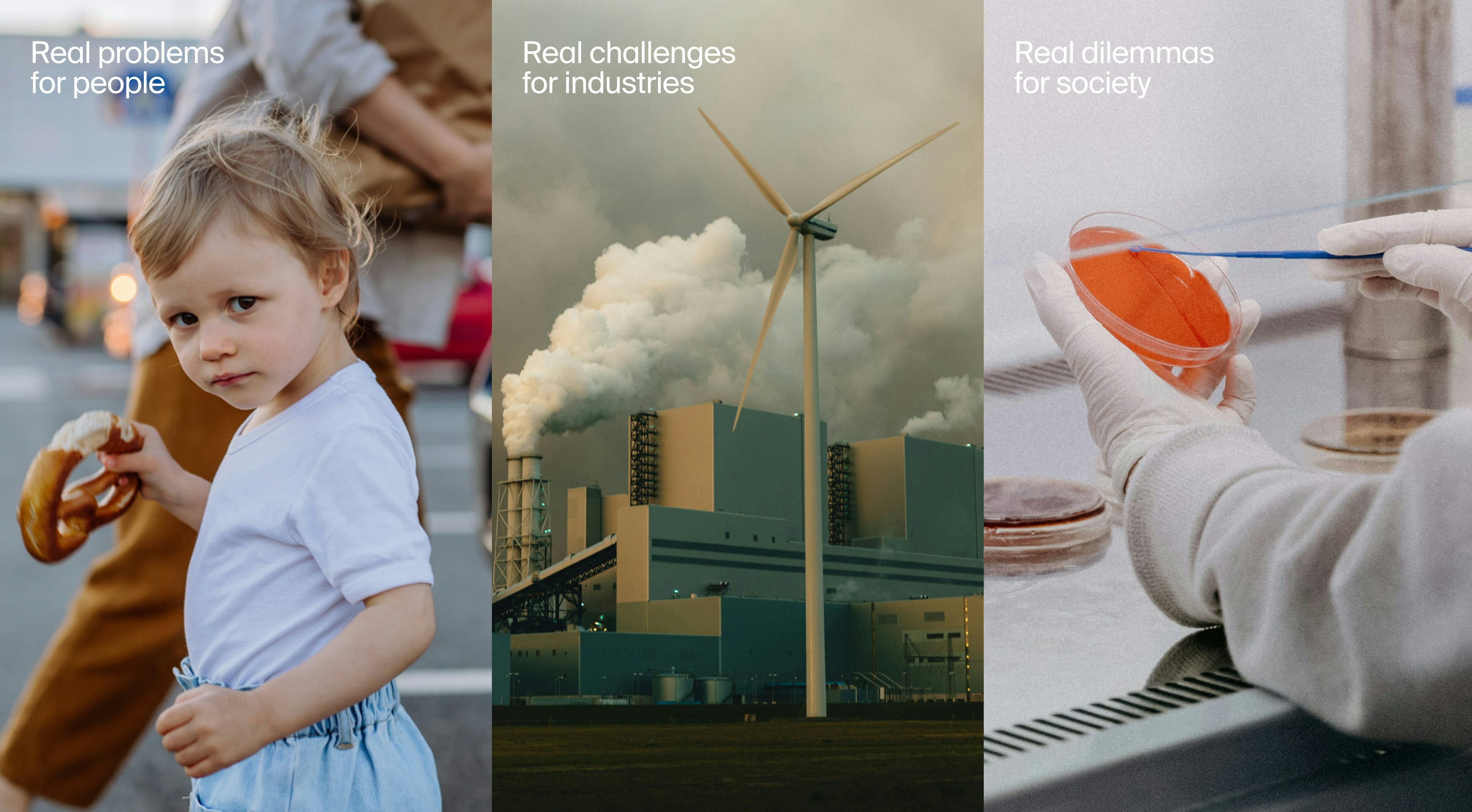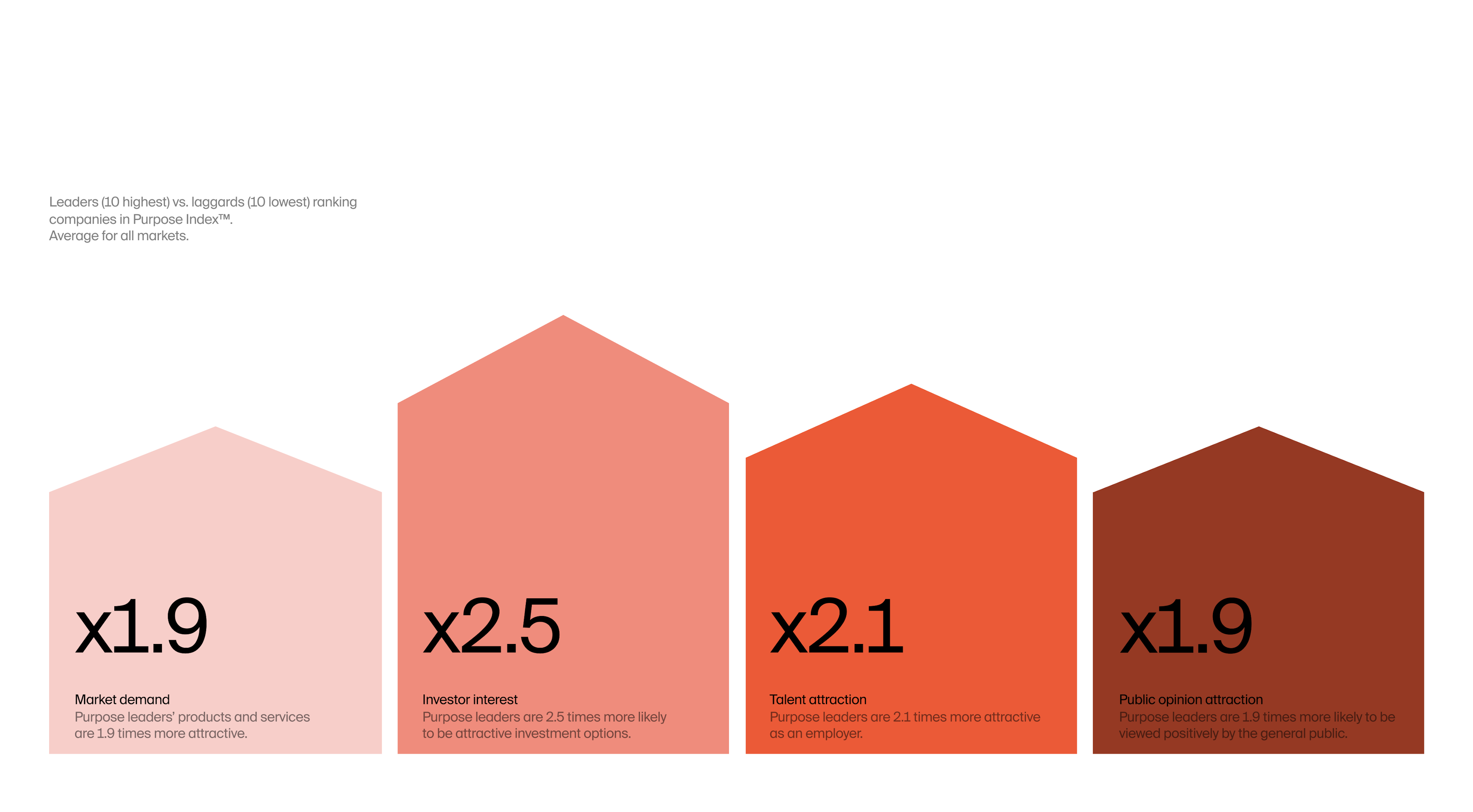We have guided companies all over the world on their purpose journeys, observing firsthand how a clear purpose translates into increased market understanding, successful transformations, and superior customer value propositions.
By addressing real issues for people, industries, and society, companies can create lasting positive impact while continuing to grow. Purpose creates a positive loop where everyone wins, including the business.

Purpose fosters engaged employees, loyal customers, constant innovation, and lasting trust. It’s not about goodwill, it fuels success. –Andreas Kåreby, Head of Client Team at Lynxeye

A verified competitive advantage
Purpose-driven brands are strategically positioned to win. We can confidently conclude that purpose has clear business effects. We have measured purpose since 2015 and this year’s study has nearly 17,000 respondents and 1,000 observation pairs for correlating purpose and different types of impact.
Explore the dataThe more a purpose is a true north star for the business, the higher the positive impact for all stakeholders. It’s a matter of creating win, win, win situation. –Johan Ekelin, Co-founder and Partner at Lynxeye
Measuring purpose
Finding the key to what makes a business truly purposeful has been a long process. We started measuring our Purpose Index™ back in 2015 when we couldn’t find a study that fulfilled all our requirements.
Since then, we have perfected our index into a reliable model that summarizes the general public’s views and expectations of companies.
Curious about purpose?
Reach out and let's explore your opportunities together

Explore the data
We measure both Purpose Index™ and additional metrics related to performance, such as talent attraction and preference, continuously over the year.
Reach out to get your results and gain insights that you can share with your team to initiate purpose discussions.

Meet with us
We love to meet with companies, share what we have found when measuring Purpose Index™ and performance metrics, and discuss what the results mean for companies and industries.
Reach out to book a meeting where we walk your team through our findings.

Listen to us
Our team of experts have extensive knowledge and experience of not just researching purpose, but activating it for companies and brands to improve business performance.
Reach out about speaker requests for our senior team members for your strategy days, panels, seminars or conferences.

Let’s workshop!
We offer a workshop format where we mix experience, knowledge and inspiration to facilitate leadership discussions on purpose and where to embark next.
Reach out to get more information about the workshop setup and to see if your company qualifies.




